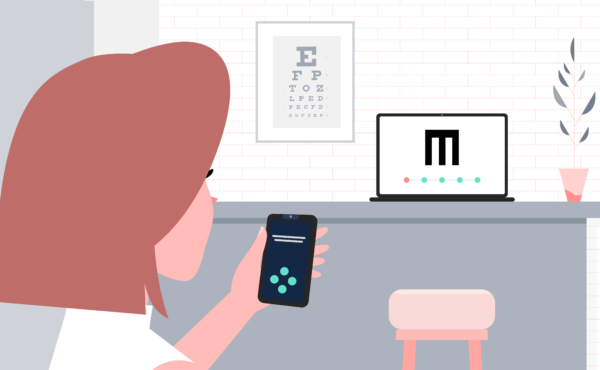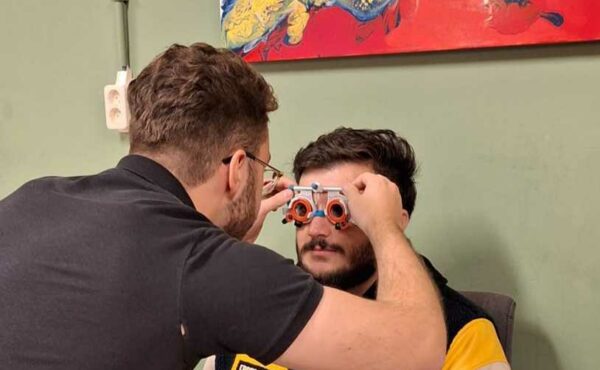Posted on 29 03 21
easee’s collaboration with UMC Utrecht and Hogeschool Utrecht has been nominated for the VBHC prize
We are honored to announce that our TeleTriage Team (TTT) has been nominated for Value-Based Health Care Grant & Endorsement 2021. TTT is a disruptive initiative in remote eye care stemmed from a collaboration between easee, the University Medical Center Utrecht and the University of Applied Sciences Utrecht.
At the core of this project lies the need to deliver high quality continuous care even in these extraordinary COVID-19 times. While medical practices are downscaled and appointments postponed, TTT offereasa safe and effective method for continuation of eyecare. It improved the communication with the patient and drastically reduced facility costs. Not unimportant: it allowed for optometry students to continue their education and created a unique learning experience.
The program is aimed at remotely triaging medical urgency and redirecting care pathways. Results have shown that roughly half of care could safely be postponed, referred to regional professionals, or transferred in a teleconsultation. In practice, optometry-students study the patients’ files and reach out by phone in a semi-structured interview. They assess the current health status and whether remote eye testing is indicated and possible, and propose a follow-up strategy. Their own clinical educators guide this process, and – in accordance with Dutch law – the supervising ophthalmologist finalizes the clinical decisions.
To date, out of 2700 patients treated so far, 24% of appointments were safely postponed or cancelled, 18% patients were referred back to the GP or regional hospitals, and 4% of the patients had their consultation changed to a phone call. In addition, 1% of the cases were considered medical emergencies necessitating an earlier intervention. The online eye test was indicated most frequently to a group of patients who don’t need immediate eyecare, and proved a valuable datapoint in selected cases. TTT created the necessary room for new patients to get an appointment with an ophthalmologist.
The future of remote eyecare in ophthalmology is bright: the necessary technology is coming to age and the acceptance of remote care is increasing among healthcare suppliers and the general public. The big challenges are the integration of new tech in existing systems and aiming at maximum inclusivity. These novel tools should not be reserved for tech-savvy first-adopters, but rather aimed at the typical ophthalmic patient: somewhat older, somewhat visually compromised, and not so digital native.
Robert P.L. Wisse, MD, PhD, ease Chief Medical Officer and UMCU assistant professor, ophthalmologist: “The current COVID-19 pandemic catalyzed the paradigm shift towards remote care, where technology is used to deliver appropriate care and retain continuity when physical access to health care is limited. The importance of high-quality remote care was underlined during the first months of the pandemic. But also, in the future, after this pandemic, there will be a need for a change in eyecare delivery to tackle the demands of our ageing society.”



